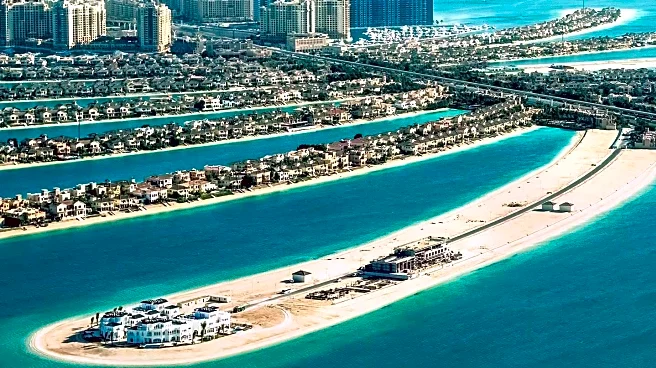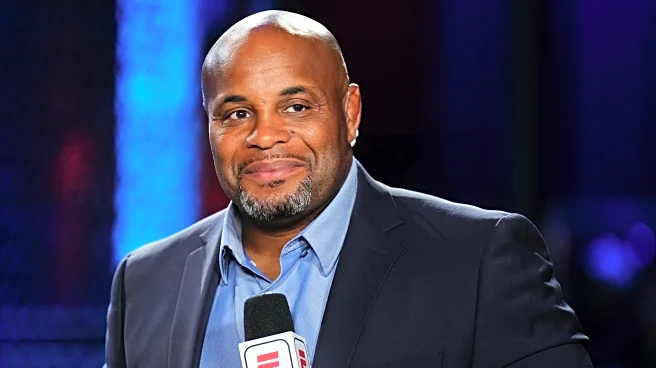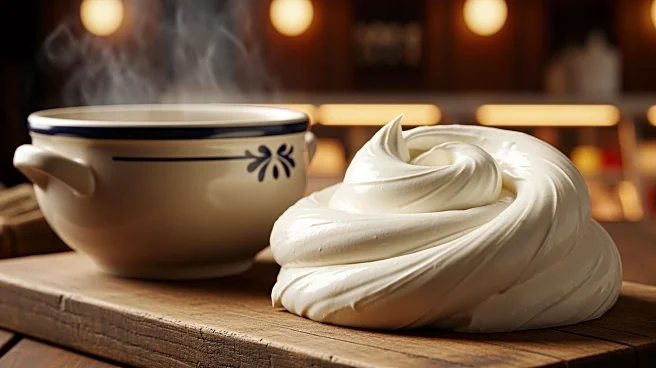What's Happening?
Dubai, often seen as a symbol of opulence and excess, is a city with a multifaceted identity that extends beyond its luxurious downtown area. The city is home to a diverse population, with expats making up 85% of its residents. This includes a wide range of diasporas, such as the largest Malayali community outside India, Iranian art dealers, Afghan handymen, and a thriving Sudanese middle class. Dubai has historically been a transit hub, connecting travelers to regions underserved by Western airlines, and has evolved into a cosmopolitan metropolis. The city's rapid development and transformation have been driven by an aggressive, cash-flush model known as 'Dubaization,' which has become a global blueprint for urban extravagance.
Why It's Important?
Dubai's unique position as a melting pot of cultures and nationalities highlights the complexities of modern migration and identity. The city's ability to attract a diverse range of people seeking opportunity and shelter underscores its role as a significant player in global migration patterns. The presence of various diasporas and the challenges faced by migrant workers in Dubai reflect broader issues of social stratification and economic disparity. As Dubai continues to grow, it serves as a microcosm of the globalized world, where cultural exchange and economic opportunity coexist with social challenges and inequalities.
What's Next?
Dubai's future will likely involve continued growth and diversification, attracting more international talent and investment. The city's development model may influence other urban centers seeking rapid transformation. However, Dubai will also need to address the social and economic challenges faced by its migrant population, including issues of identity, belonging, and exploitation. As the city evolves, it may see increased advocacy for migrant rights and more inclusive policies to ensure equitable growth and development.
Beyond the Headlines
The cultural and social dynamics within Dubai offer a deeper understanding of the migrant experience, as depicted in contemporary Gulf literature and cinema. These narratives provide insight into the lives of migrant workers, moving beyond stereotypes to portray their struggles, aspirations, and resilience. Dubai's role as a 'funhouse mirror' reflects broader global trends, challenging Western perceptions and encouraging a more nuanced view of migration and urban development.










